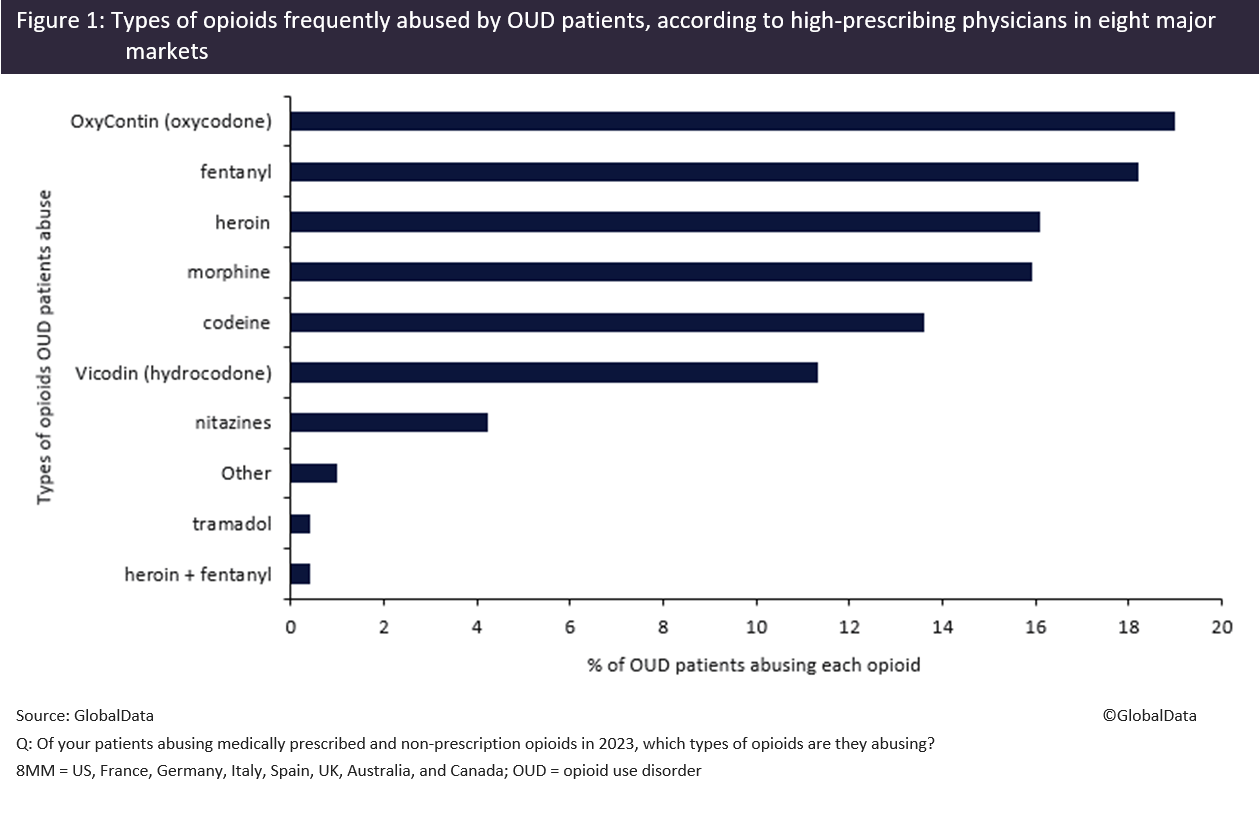On 6 August, at the International Association for the Study of Pain (IASP) World Congress, an oral presentation held during a topical workshop on the use of opioid therapy for chronic pain highlighted discrepancies among the treatment guidelines across multiple countries (such as the US and Canada) and guideline bodies for opioids and their use in chronic pain conditions. The presentation noted a lack of consistency in the recommendations for therapeutic intervention in chronic pain conditions, raising concerns regarding the methodologies used in the production of clinical practice guidelines (CPGs) for chronic pain management. The session highlighted the likely risk of opioid therapy in chronic pain management resulting in a risk of opioid use disorder (OUD).
OUD is a chronic neurological disorder that is described as the consequences associated with repeated, compulsive use of opioid drugs and prolonged self-administration of opioid drugs. Chronic pain conditions and OUD are often comorbid. A 2017 study conducted by Hser and colleagues, published in the Journal of Substance Abuse Treatment, found that most OUD patients (64.4%) had chronic pain conditions, and among them, 61.8% had chronic pain before their first OUD diagnosis. This supports the notion that opioid abuse often stems from the mismanagement of chronic pain conditions using opioid therapies. This idea is further enhanced by data presented during the oral presentation at IASP, which evaluated 22,278 chronic pain patients across nine studies. The data concluded that when engaging in opioid therapy, the risk of opioid use disorder is 5.5% (95% confidence interval [CI]: 3.91–7.03).
The findings at IASP are reinforced by prescriber survey data obtained by GlobalData. In August 2024, 110 high-prescribing psychiatrists, addiction specialists, neurologists, and primary care physicians from eight major markets (US, France, Germany, Italy, Spain, UK, Australia, and Canada) were surveyed on the types of opioids their OUD patients abused. As seen in Figure 1, the prescribers indicated that the most common opioid of abuse was oxycodone, a semi-synthetic opioid used medically for the treatment of moderate to severe pain. The data suggests that updated, more stringent, CPGs are required for the prescription of opioids in the management of chronic pain to lower the risk of patients developing OUD. However, the IASP presentation outlined a lack of consistency in the recommendations for therapeutic intervention in chronic pain conditions.
A 2023 systematic review of CPGs on the interventional management of lower back pain presented at the IASP session by Olivier and colleagues, published by the American Academy of Physical Medicine and Rehabilitation, appraised a total of 21 CPGs from different countries, including the US, the UK and Australia, on interventional procedures for low back pain. It was found that there was no consistency in recommendations for or against any interventional procedure, including opioid therapy. Such an inconsistency raises questions about the role CPGs play in the overprescription of opioids and subsequent rising rates in OUD prevalence. GlobalData epidemiologists anticipate the prevalence rate of OUD across eight major markets (US, Australia, Austria, Belgium, Canada, Denmark, Germany, and Switzerland) to reach 2.9 million by 2028. A review of CPGs about opioid therapy for the management of chronic pain and OUD treatment is required to avoid a potential exacerbation of projected prevalence rates.
Based on the IASP discussions and physician feedback previously captured by GlobalData, a review of current CPGs is needed to iron out inconsistencies and reach a consensus regarding the recommendation of opioid therapy for chronic pain management, to arrive at an approach that protects chronic pain patients against the risk of developing OUD.

US Tariffs are shifting - will you react or anticipate?
Don’t let policy changes catch you off guard. Stay proactive with real-time data and expert analysis.
By GlobalData




